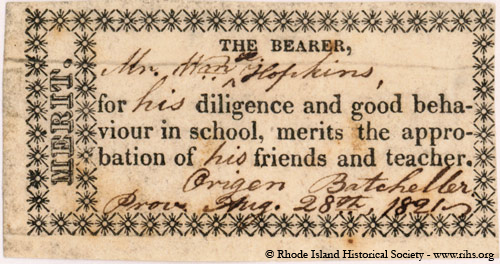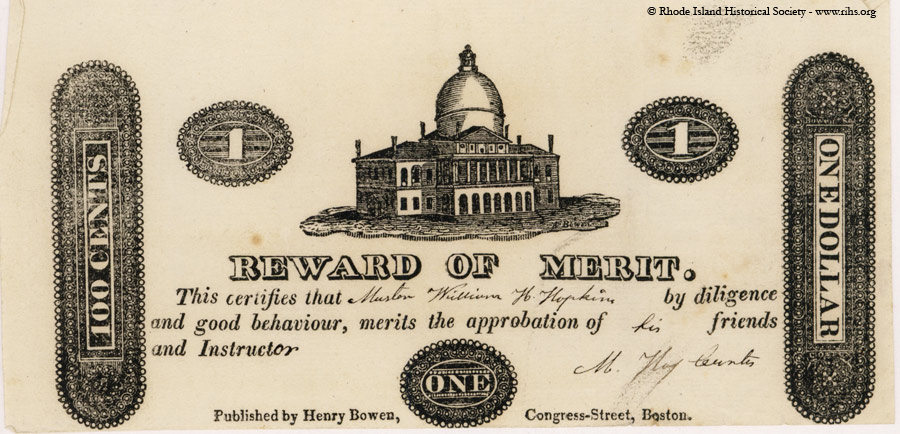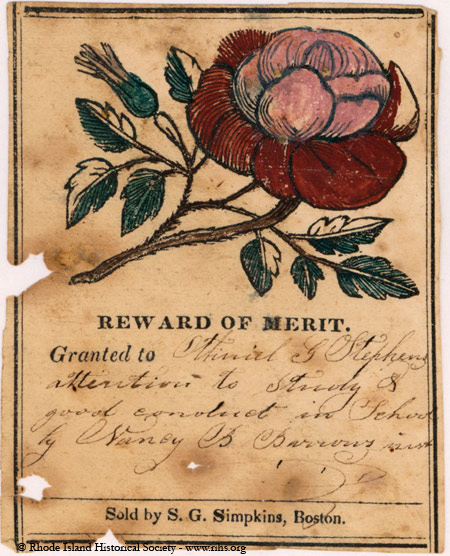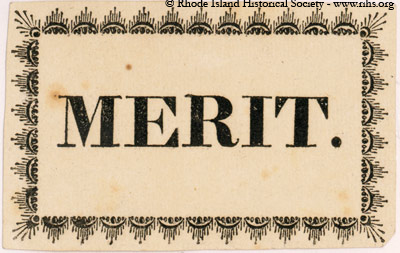Good students have been getting rewards of one kind or another for a long time, and the companies producing and selling them today can trace their heritage back hundreds of years. One of the simplest forms of telling students they’d done a good job was the “reward of merit,” an ephemeral certificate dating back in America to the eighteenth century.

Here are a few examples of rewards of merit from the RIHS collections.
Rewards of merit with a monetary value, like the one below, were popularized by Joseph Lancaster, an educational innovator of the early nineteenth century. While they obviously weren’t legal tender outside the classroom, they would have been saved and used to purchase other prizes (à la Chuck E. Cheese).*

Some offered visual appeal:

Some were a little more bland**:

The best source for learning more about rewards of merit is a publication by the Ephemera Society of America: Rewards of Merit: Tokens of a Child’s Progress and a Teacher’s Esteem as an Enduring Aspect of American Religious and Secular Education. (Find a copy to borrow or buy.)
Four Reward of Merit Certificates: RIHS, G1157 Broadsides, 1822
* Patricia Fenn and Alfred Malpa, Rewards of Merit: Tokens of a Child’s Progress and a Teacher’s Esteem as an Enduring Aspect of an American Religious and Secular Education, Charlottesville, VA: Ephemera Society of America. p. 114.
** This particular type of reward of merit is actually harder to find examples of than the more decorative varieties: “On very few occasions did printers use the word ‘Merit’ alone.” Fenn, Rewards of Merit, p. 171.

Actually, the last one is my favorite, I think. Thank you for sharing these.